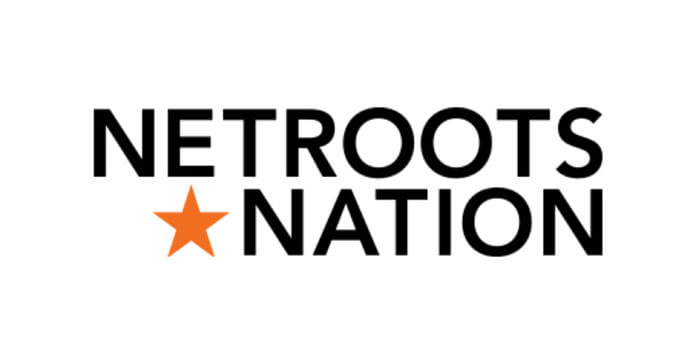Michael Li of the Brennan Center’s Democracy Program opened this afternoon’s redistricting panel by stating that although there have been historic gains in this redistricting cycle, “There are many maps in the country that are still widely skewed in favor of the party that drew them.”
This panel also included Victoria Grijalva Ochoa, who is the Candidate Recruitment Director of One Arizona, Salewa Ogunmefun, Executive Director of Pennsylvania Voice, and Khadidah Stone, a litigator and organizer who leads the Evolve America podcast.
The maps that Li mentioned consistently make it more difficult for progressives and minorities to win elections. Li says that outside of California, there were very limited improvements in representation for people of color.
Ochoa discussed the media attention surrounding Arizona’s Independent State Commissions, addressing the positive and negative results produced by the commission. While reports are largely considering Arizona’s maps to be some of the fairest, Ochoa argues there are still significant disparities in Arizona among minority voters. She clarified that just because a state uses a commission process does not mean they have a fair redistricting process.
In her opinion, the biggest issue with Arizona’s commission is the size. Currently, it includes two Republicans, two Democrats, and one independent. Only having one “tie-breaker” independent vote makes that person’s biases very powerful in the process. Ochoa compared this small group to the much larger commission in Michigan, which was very successful in drawing equitable maps. She concluded that the most common issue in other commission states, particularly Virginia, is the presence of lawmakers on commissions.
Ochoa also stressed the importance of open, accessible meetings and community involvement in the redistricting process. This point was echoed by the rest of the panel, including Khadidah Stone, who criticized Alabama’s open meetings for being at inaccessible times, often in the middle of the work day.
Stone discussed her involvement in the litigation of Milligan v Merrill, an Alabama case arguing that Section 2 of the Voting Right Act should be used to block Alabama’s gerrymandered maps. Stone says that these maps clearly dilute the votes of minorities, legitimizing their claim that the maps violate Section 2. Currently, Alabama maps place the majority of Black voters into a single congressional district, while the remaining Black voters are split up into other congressional districts.
Stone stressed the importance of this case by stating Alabama’s poor national rating in both health care and education. In her opinion, redistricting has played a distinct role in guaranteeing the needs of both poor and minority voters are unmet. Having a second primarily Black congressional district, rather than breaking up and diluting the community, will ultimately allow for healthcare and education-focused candidates to be more successful.
Li also addressed Milligan v Merrill as well as the forty-one other active cases challenging maps. The primary concern about these cases is that the Supreme Court will set the dangerous precedent that federal and state courts should not be involved in challenges to maps. This position is based in the Constitutional provision charging state legislatures with the responsibility of having redrawn legislative and congressional maps every decade. The present Supreme Court could decide that they can only be drawn directly by a state legislature and not discharged to such options as a commission. Li said that this is a very damaging precedent that would give state legislatures the power to draw maps without a necessary check against abuses. In his opinion, there is a real danger that the Supreme Court could move in this direction this term.
Closing comments included Stone announcing her goal to have rallies in every state capital this October 4th, when Milligan v Merrill is scheduled to be heard before the Supreme Court. Ogunmefun followed Stone’s announcement with a reminder to keep the role of redistricting on the forefront of conversations regarding increasing the facility to both vote and to be registered to vote. This means that even in the decade between the redistricting processes, we need to remind voters how important redistricting is in every citizen’s right to vote.

